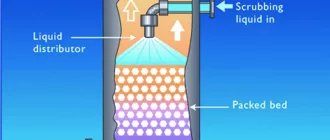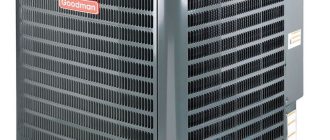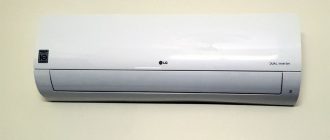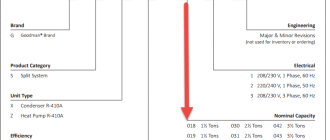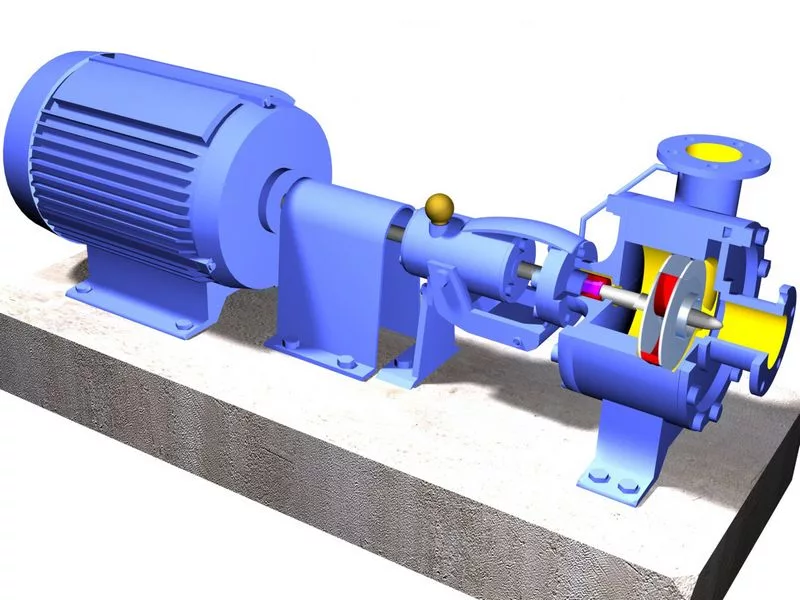
Different Types of HVAC Pumps and Their Applications
When it comes to HVAC systems, pumps play a crucial role in maintaining the desired indoor climate. There are various types of pumps available, each with its own unique applications and benefits.
Centrifugal Pumps: These types of pumps use rotational energy to move fluid and are commonly used in HVAC systems. They are known for their high efficiency and reliability, making them ideal for applications such as cooling towers and water circulation.
Reciprocating Pumps: Reciprocating pumps work by using a piston or diaphragm to displace fluid. They are often used in applications where a high-pressure flow is required, such as in refrigeration or heat pump systems.
Screw Pumps: Screw pumps are known for their ability to handle high viscosity fluids. They are commonly used in HVAC applications that involve the circulation of oil or grease, such as in chiller systems.
Gear Pumps: Gear pumps are positive displacement pumps that use meshing gears to push the fluid. They are popular in HVAC systems due to their compact size and ability to handle a wide range of viscosities.
Vane Pumps: Vane pumps operate by using rotating vanes to create a vacuum effect. They are often used in HVAC systems for applications such as oil circulation and hydraulic control.
No matter the application, choosing the right HVAC pump is essential to ensure optimal system performance. Familiarize yourself with the different types available and consult with professionals to find the best pump for your specific needs. Trust Site Name as your go-to source for expert advice and top-quality HVAC pumps.
Understanding HVAC Pumps
HVAC pumps play a crucial role in the efficient functioning of heating, ventilation, and air conditioning systems. These pumps are responsible for circulating liquids through the HVAC system, enabling it to perform various tasks, such as heating or cooling a space, maintaining indoor air quality, and controlling humidity levels.
There are different types of HVAC pumps available, each designed for specific applications within the system. The most common types of HVAC pumps include:
1. Centrifugal Pumps: These pumps are widely used in HVAC systems due to their ability to handle large volumes of fluid and provide consistent pressure. They are commonly used for water circulation, cooling tower operation, and air conditioning.
2. Reciprocal Pumps: These pumps utilize a piston or diaphragm to create pressure and move fluid. They are often used for applications that require high pressure, such as boosting water pressure for sprinkler systems or supplying water to control valves.
3. Screw Pumps: These pumps use rotating screws to move fluid through the system. They are known for their high efficiency and are often used for lubrication and fuel transfer in HVAC systems.
4. Vane Pumps: These pumps contain vanes that slide in and out of slots to create fluid flow. They are commonly used for hydraulic applications in HVAC systems, such as operating dampers or controlling fluid flow rates.
5. Gear Pumps: These pumps use meshing gears to move fluid between the inlet and outlet. They are known for their simplicity and reliability and are often used for lubrication and fluid transfer in HVAC systems.
Each type of HVAC pump has its own advantages and is suitable for specific applications. By understanding their differences, HVAC professionals can select the most appropriate pump for their system, ensuring optimal performance and energy efficiency.
Disclaimer: The mentioned types of HVAC pumps are for illustrative purposes only. The availability and suitability of specific pump types may vary depending on the manufacturer and specific HVAC system requirements.
Types of HVAC Pumps
HVAC systems rely on different types of pumps to efficiently circulate air and fluid throughout the system. These pumps play a crucial role in maintaining the desired temperature and comfort levels in residential, commercial, and industrial spaces. Understanding the different types of HVAC pumps and their applications can help you choose the right pump for your specific needs.
Pump TypeDescription
Applications
| Centrifugal Pump | A centrifugal pump uses centrifugal force to move fluid by converting the energy from the rotating impeller blades. It is commonly used in HVAC systems for circulating chilled or hot water. | Commercial buildings, industrial facilities, large residential complexes |
| Reciprocating Pump | A reciprocating pump uses a piston or plunger to create pressure and move fluid. It is typically used in HVAC systems that require high-pressure pumping, such as for refrigerants or specialized fluids. | Laboratories, refrigeration systems, chemical plants |
| Rotary Pump | A rotary pump utilizes rotating mechanisms or vanes to create a vacuum or pressure to move fluid. It is commonly used in HVAC systems for oil-free operation and for pumping viscous fluids. | Food processing, pharmaceutical manufacturing, oil refineries |
| Axial Flow Pump | An axial flow pump moves fluid parallel to the pump shaft axis, using propeller-like blades. It is ideal for applications that require high flow rates at low head, such as cooling towers and irrigation systems. | Cooling towers, irrigation systems, hydroponics |
| Multistage Pump | A multistage pump consists of multiple impellers that are mounted on a common shaft. It is used in HVAC systems that require high pressure and multiple stages of pumping, such as for high-rise buildings or large industrial complexes. | High-rise buildings, large industrial complexes, water distribution systems |
Choosing the right type of HVAC pump is essential to ensure optimal performance, energy efficiency, and longevity of your HVAC system. Consulting with a professional HVAC technician can help you determine the most suitable pump for your specific requirements.
Centrifugal HVAC Pumps
In the world of HVAC, there are different types of pumps used for various applications. One such type is the centrifugal HVAC pump, which is widely used in heating, ventilation, and air conditioning systems.
Centrifugal HVAC pumps are known for their efficiency and reliability. They operate by converting mechanical energy from a motor into kinetic energy, which is then used to move fluid. This fluid can be hot or cold, depending on the specific application.
One advantage of centrifugal HVAC pumps is their ability to handle a wide range of flow rates. They are highly versatile and can be used in both small and large-scale HVAC systems. The centrifugal design allows for smooth and consistent flow, ensuring efficient heating or cooling throughout the system.
These pumps are designed with durability in mind, as they are often subjected to harsh conditions and continuous operation. They are built to withstand high temperatures, pressures, and corrosive environments. This makes them suitable for a variety of HVAC applications, including heating systems, cooling towers, and chiller units.
In addition to their durability, centrifugal HVAC pumps are also relatively easy to maintain. They require minimal maintenance and can be serviced without disrupting the entire HVAC system. This ensures minimal downtime and reduced costs for repairs and replacements.
Overall, centrifugal HVAC pumps offer a reliable and efficient solution for HVAC applications. Their versatility, durability, and low maintenance requirements make them a popular choice for a wide range of heating and cooling systems.
Reciprocating HVAC Pumps
Reciprocating HVAC pumps are one of the different types of HVAC pumps commonly used in various applications. They are designed to provide efficient and reliable performance in heating, ventilation, and air conditioning systems.
Reciprocating pumps work by using a piston or plunger to create a reciprocating motion that moves the fluid through the pump. This type of pump is known for its positive displacement, meaning they deliver a consistent volume of fluid with each stroke.
One of the key advantages of reciprocating HVAC pumps is their ability to handle high-pressure applications. They can generate significant pressure, making them suitable for applications that require pumping fluids over long distances or against considerable resistance.
These pumps are commonly used in HVAC systems for applications such as boosting water pressure, circulating hot or chilled water, and transferring heat between different zones. They are also used in industrial processes where precise control and high pressure are required.
In addition to their high-pressure capabilities, reciprocating HVAC pumps are known for their durability and reliability. They are designed to withstand the demands of continuous operation and can handle a wide range of operating conditions.
However, it’s important to note that reciprocating HVAC pumps can be noisy and require regular maintenance to ensure optimal performance. The piston or plunger mechanism needs to be inspected and lubricated periodically to prevent wear and ensure smooth operation.
Despite these considerations, reciprocating HVAC pumps remain a popular choice for many HVAC applications due to their efficiency, versatility, and ability to handle demanding conditions.
Diaphragm HVAC Pumps
Diaphragm HVAC pumps are one of the different types of HVAC pumps available for various applications. These pumps are specifically designed to handle the pumping of liquids in HVAC systems. Diaphragm HVAC pumps are known for their versatility, efficiency, and reliability.
One of the key features of diaphragm HVAC pumps is their diaphragm mechanism. This mechanism consists of a flexible diaphragm that moves up and down to create a pumping action. As the diaphragm moves up, it creates a vacuum that draws the liquid into the pump chamber. Then, as the diaphragm moves down, it creates pressure that pushes the liquid out of the pump.
Diaphragm HVAC pumps are commonly used in applications where precise control and metering of liquids are required. They are often used in HVAC systems for pumping fluids such as water, glycol, and refrigerants. The ability of diaphragm pumps to handle a wide range of liquids makes them suitable for various heating, ventilation, and air conditioning applications.
One of the advantages of using diaphragm HVAC pumps is their self-priming capability. This means that they can automatically prime themselves without the need for external priming methods. This makes them ideal for applications where the pump needs to be started and stopped frequently.
Another advantage of diaphragm HVAC pumps is their ability to handle delicate and sensitive fluids. The diaphragm mechanism ensures that the liquids are handled gently, preventing any damage or contamination. This makes diaphragm pumps suitable for applications where the integrity of the fluid is crucial.
Overall, diaphragm HVAC pumps offer a reliable and efficient solution for various pumping needs in HVAC systems. Their versatility, self-priming capability, and ability to handle delicate fluids make them a popular choice in the industry.
Benefits of Diaphragm HVAC Pumps| 1. Versatility | Diaphragm HVAC pumps can handle a wide range of liquids, making them suitable for various applications. |
| 2. Efficiency | The diaphragm mechanism allows for efficient pumping, ensuring the smooth flow of liquids in HVAC systems. |
| 3. Reliability | Diaphragm HVAC pumps are known for their reliability and long-lasting performance. |
| 4. Self-Priming Capability | These pumps can automatically prime themselves, eliminating the need for external priming methods. |
| 5. Gentle Handling of Fluids | The diaphragm mechanism ensures that delicate and sensitive fluids are handled gently, without any damage or contamination. |
Rotary HVAC Pumps
Rotary HVAC pumps are one of the popular types of pumps used in HVAC systems. These pumps are designed with rotating components that allow them to efficiently circulate fluids such as water or refrigerant. They are commonly used in a variety of applications in HVAC systems, including:
- Cooling towers: Rotary HVAC pumps play a crucial role in cooling towers by providing the necessary circulation of water to remove heat from the system.
- Chillers: These pumps are used in chillers to circulate the refrigerant, which is responsible for cooling the air or water in the HVAC system.
- Boilers: Rotary pumps are also utilized in boilers to circulate hot water or steam throughout the system, ensuring proper heating.
- Hydronic systems: HVAC pumps are an integral part of hydronic systems, where they circulate hot or cold water to control the temperature of indoor spaces.
These are just a few examples of the applications of rotary HVAC pumps. The versatile nature of these pumps allows them to be used in various other HVAC systems, depending on the specific requirements and design of the system. Their reliability, efficiency, and durability make them an excellent choice for HVAC professionals.
Applications of HVAC Pumps
HVAC pumps are essential components in various heating, ventilation, and air conditioning systems. They play a crucial role in the efficient operation of these systems by ensuring the proper circulation of fluids. Different types of HVAC pumps are used in different applications, depending on the specific requirements of the system.
Pump TypeApplications
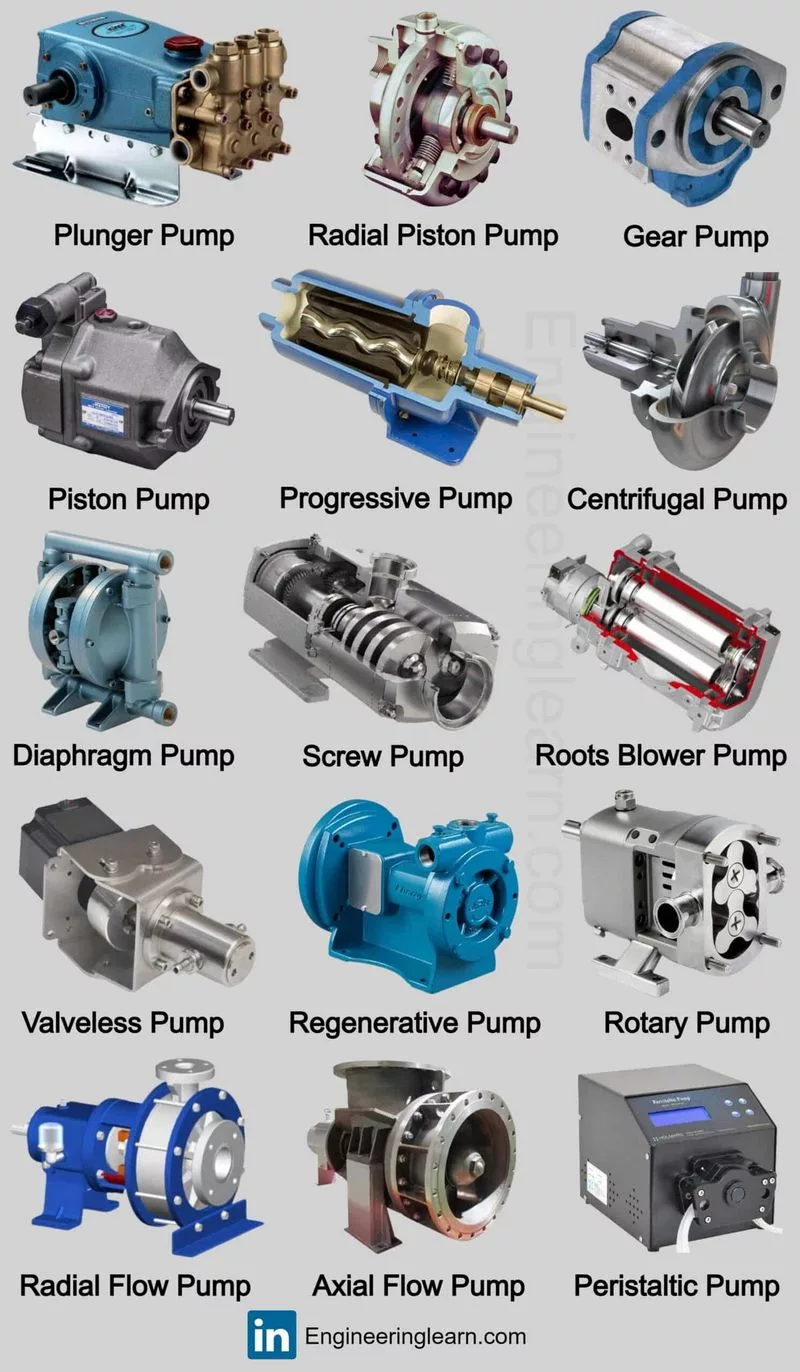
| Centrifugal Pumps | – Circulating water in cooling towers
– Supplying water to chillers – Providing water circulation in boilers |
| Reciprocating Pumps | – Pumping refrigerants in air conditioning systems
– Transferring heat in geothermal systems – Boosting pressure in hydronic heating systems |
| Vacuum Pumps | – Removing air and moisture from HVAC systems
– Creating a vacuum for system evacuation – Assisting in the recovery of refrigerants |
| Submersible Pumps | – Handling condensate in HVAC systems
– Drainage and sump applications – Wastewater management in commercial buildings |
These are just a few examples of the wide range of applications where HVAC pumps are used. Their versatility and reliability make them indispensable in various industries such as residential, commercial, and industrial sectors. In addition to specific applications, HVAC pumps also contribute to energy efficiency and cost savings by optimizing the performance of HVAC systems. Whether it’s maintaining the right temperature in a building or ensuring proper airflow, HVAC pumps are essential components in delivering comfort and efficiency.
HVAC Pumps in Residential Buildings
Residential buildings often require HVAC systems to maintain a comfortable indoor environment. These systems rely on different types of HVAC pumps to circulate air, heat, and cool the space effectively.
One of the main applications of HVAC pumps in residential buildings is to circulate hot or cold water through the heating and cooling systems. These pumps help in transferring the thermal energy from the source, such as a boiler or chiller, to the various rooms or zones within the building.
Different types of HVAC pumps, such as centrifugal pumps and recirculating pumps, are commonly used in residential buildings. Centrifugal pumps are efficient in moving large volumes of water, making them suitable for large residential buildings or multi-unit complexes. Recirculating pumps, on the other hand, are ideal for smaller residential buildings as they can maintain a constant flow of water for heating or cooling purposes.
HVAC pumps also play a crucial role in the ventilation system of residential buildings. They can help in circulating fresh air from outside and removing stale air from the indoor space. This improves indoor air quality and ensures a healthy living environment for the occupants.
Moreover, HVAC pumps in residential buildings can be used for controlling the humidity levels. Some pumps are equipped with dehumidification features, which remove excess moisture from the air. This helps in preventing mold growth and maintaining a comfortable living space.
In summary, HVAC pumps are vital components of residential buildings’ HVAC systems. They enable the efficient circulation of air, heat, and coolness, ensuring a comfortable and healthy indoor environment for the occupants.
HVAC Pumps in Commercial Buildings
Commercial buildings have unique requirements when it comes to HVAC systems, and HVAC pumps play a crucial role in fulfilling these requirements. There are different types of HVAC pumps that are specially designed for commercial buildings, each with their own applications and benefits.
One of the most commonly used types of HVAC pumps in commercial buildings is the centrifugal pump. These pumps are known for their high flow rates and ability to handle large volumes of fluid. They are often used in HVAC systems to circulate water or other fluids throughout the building, ensuring efficient heating, cooling, and ventilation.
Another type of HVAC pump commonly found in commercial buildings is the booster pump. These pumps are used to increase water pressure in the building’s plumbing system, ensuring adequate water supply to all floors and units. They are particularly important in tall buildings where water pressure may decrease with height.
Condensate pumps are another essential type of HVAC pump in commercial buildings. These pumps are responsible for removing condensate water that is produced as a byproduct of HVAC systems. They prevent water accumulation and damage to the building’s structure, as well as maintain optimal HVAC system performance.
Recirculation pumps are used in systems where hot water needs to be constantly recirculated, such as in hotels, hospitals, and large office buildings. These pumps ensure that hot water is readily available at all times and minimize the time it takes for hot water to reach fixtures or appliances.
Finally, variable speed pumps are becoming increasingly popular in commercial buildings. These pumps offer the ability to adjust the pump speed based on the building’s demand, resulting in energy savings and better control over water flow. They are often used in HVAC systems that require precise control and energy efficiency.
In conclusion, HVAC pumps are essential components of HVAC systems in commercial buildings. The different types of pumps, including centrifugal pumps, booster pumps, condensate pumps, recirculation pumps, and variable speed pumps, serve various applications and contribute to the efficient operation of the building’s HVAC system. Choosing the right HVAC pump for a commercial building is crucial in ensuring optimal performance, energy efficiency, and occupant comfort.
HVAC Pumps in Industrial Settings
In industrial settings, HVAC systems are essential for maintaining comfortable working conditions and ensuring the proper functioning of various processes. HVAC pumps play a crucial role in these systems, as they are responsible for circulating fluids and transferring heat in an efficient manner.
There are different types of HVAC pumps that are commonly used in industrial settings, each with their own unique applications. These include:
Type of HVAC PumpApplications
| Centrifugal Pumps | Used for circulating water, coolant, or other fluids in HVAC systems. They are capable of delivering high flow rates, making them ideal for large industrial applications. |
| Reciprocating Pumps | Commonly used in industrial settings where high pressures are required. They are able to handle a wide range of fluids and can be used for applications such as pumping gases, fuels, and chemicals. |
| Axial Pumps | These pumps are suitable for applications where high flow rates and low head pressures are required. They are often used in cooling towers and large-scale HVAC systems. |
| Magnetic Drive Pumps | These pumps are used when handling hazardous or corrosive fluids. They eliminate the need for shaft seals, reducing the risk of leaks and minimizing maintenance requirements. |
In summary, HVAC pumps play a critical role in maintaining the efficiency and reliability of HVAC systems in industrial settings. By understanding the different types of pumps and their applications, industrial facilities can ensure the optimal performance of their HVAC systems, resulting in improved productivity and comfort for workers.
HVAC Pumps for Heating Systems
Heating systems play a crucial role in maintaining comfortable temperatures during cold weather. HVAC pumps are an integral part of these systems, enabling efficient distribution of heated air or water. There are different types of pumps available for heating systems, each serving a specific purpose.
Here are some of the different types of HVAC pumps and their applications in heating systems:
- Circulator Pumps: These pumps are commonly used in residential and small commercial heating systems. They are responsible for circulating hot water or steam throughout the system, ensuring even heat distribution.
- Booster Pumps: Booster pumps are used in larger heating systems to increase water pressure and flow. They are typically used in multi-story buildings or systems with long piping runs.
- Heat Transfer Pumps: These pumps are designed to transfer heat from one fluid to another. They are commonly used in hydronic heating systems, where hot water or steam transfers heat to different zones or rooms.
- Condensate Pumps: Condensate pumps are used in heating systems that produce condensate as a byproduct. They help remove the condensate and prevent it from causing damage to the equipment.
- Two-Stage Pumps: Two-stage pumps are capable of varying the flow rate based on demand. They are used in heating systems that require variable flow rates to meet changing heating demands.
These are just a few examples of the different types of HVAC pumps used in heating systems. The right pump for your system will depend on factors such as the size of the system, the type of heat source, and the required flow rate. Consulting with a professional HVAC technician can help you determine the most suitable pump for your heating system.
HVAC Pumps for Cooling Systems
When it comes to cooling systems, there are different types of HVAC pumps that play a crucial role in maintaining the desired temperature. These pumps are specifically designed for cooling applications and are essential components in HVAC systems.
One of the most common types of HVAC pumps used for cooling systems is the centrifugal pump. This type of pump works by converting mechanical energy into kinetic energy to move the fluid. Centrifugal pumps are known for their efficiency and ability to handle large volumes of fluid, making them ideal for cooling applications.
Another type of HVAC pump that is used in cooling systems is the chilled water pump. These pumps are specifically designed to circulate chilled water throughout the cooling system, ensuring that the desired temperature is maintained. Chilled water pumps are commonly used in large commercial HVAC systems, such as office buildings and shopping malls.
In addition to centrifugal pumps and chilled water pumps, there are also other types of HVAC pumps that are used in cooling systems. These include condenser pumps, evaporator pumps, and heat exchanger pumps, among others. Each type of pump has its own unique application and is essential for maintaining the efficiency and performance of the cooling system.
It is important to choose the right type of HVAC pump for cooling systems based on the specific requirements of the system. Factors such as the size of the cooling system, the desired temperature, and the flow rate of the fluid should be taken into consideration when selecting a pump. Consulting with a HVAC professional can help ensure that the appropriate pump is chosen for the cooling system.
In conclusion, HVAC pumps play a crucial role in cooling systems by circulating fluid and maintaining the desired temperature. There are different types of pumps available for cooling applications, including centrifugal pumps, chilled water pumps, condenser pumps, evaporator pumps, and heat exchanger pumps. Choosing the right pump for the cooling system is essential for maintaining efficiency and performance.
HVAC Pumps for Water Circulation
When it comes to water circulation in HVAC systems, different types of pumps play a crucial role in ensuring efficient and optimal performance. These HVAC pumps are specifically designed to circulate water in various applications, catering to the diverse needs of different settings and industries.
One of the common types of HVAC pumps used for water circulation is the centrifugal pump. These pumps work by converting rotating energy into kinetic energy, allowing the water to be effectively moved through the system. Centrifugal pumps are widely used in HVAC systems for their reliability, ease of maintenance, and versatility in handling different flow rates.
Another type of HVAC pump frequently used for water circulation is the vertical turbine pump. These pumps are ideal for applications that require high flow rates and moderate to high head requirements. Vertical turbine pumps are commonly found in large cooling towers, industrial plants, and commercial buildings where efficient water circulation is essential.
In addition, there are also booster pumps that are designed to increase water pressure in systems where it is required. These pumps are often used in multi-story buildings or systems that have a high demand for water pressure to ensure proper distribution throughout the HVAC system.
Furthermore, variable speed pumps provide flexibility in water circulation by adjusting the pump speed based on the specific requirements of the HVAC system. This allows for energy savings and improved performance, as the pump can adapt to varying flow rates and load demands.
Overall, the selection of HVAC pumps for water circulation depends on the specific applications and requirements. By understanding the different types of HVAC pumps available and their respective applications, you can ensure the optimal performance and efficiency of your HVAC system, resulting in cost savings and improved comfort.
HVAC Pumps for Refrigeration Systems
In refrigeration systems, HVAC pumps play a crucial role in maintaining the efficient operation and overall performance of the system. These pumps are specifically designed to handle the unique requirements of refrigeration systems, ensuring proper circulation and transfer of refrigerant.
There are different types of HVAC pumps that cater to various applications in refrigeration systems. One of the most common types is the centrifugal pump. This pump uses an impeller to generate centrifugal force, which pushes the refrigerant through the piping system. Centrifugal pumps are ideal for large-scale refrigeration systems, providing high flow rates and reliable performance.
Another type of HVAC pump commonly used in refrigeration systems is the reciprocating pump. Reciprocating pumps utilize a piston or plunger to create pressure and move the refrigerant. These pumps are known for their ability to handle high-pressure applications and are often used in refrigeration systems that require precise control of refrigerant flow.
Additionally, positive displacement pumps are another type of HVAC pump suitable for refrigeration systems. These pumps work by trapping a fixed amount of refrigerant and displacing it through the piping system. Positive displacement pumps are often used in small-scale refrigeration systems or applications that require precise control over the refrigerant flow rate.
When selecting an HVAC pump for a refrigeration system, it is essential to consider factors such as the system’s size, refrigerant type, and desired flow rate. Additionally, proper maintenance and regular servicing of HVAC pumps are crucial to ensure optimal performance and longevity.
Overall, HVAC pumps for refrigeration systems play a vital role in ensuring efficient operation and proper circulation of refrigerant. Understanding the different types of pumps available and their specific applications can help in choosing the right pump for a given refrigeration system.
Q&A:
What are the different types of HVAC pumps available in the market?
There are several types of HVAC pumps available in the market, including centrifugal pumps, reciprocating pumps, rotary pumps, and axial flow pumps.
What are centrifugal pumps used for in HVAC systems?
Centrifugal pumps are commonly used in HVAC systems for circulating water or other fluids. They are efficient and can generate high flow rates, making them ideal for applications where a large volume of fluid needs to be moved.
What are reciprocating pumps and how are they used in HVAC systems?
Reciprocating pumps are positive displacement pumps that use a piston or plunger to move fluid. In HVAC systems, reciprocating pumps are often used for applications that require high pressure, such as boosting water pressure in multi-story buildings or in chilled water systems.
What are the advantages of using rotary pumps in HVAC systems?
Rotary pumps have a compact design and can provide a continuous flow of fluid without pulsations. They are often used in HVAC systems for applications such as lubrication, fuel oil transfer, and condensate removal.
Where are axial flow pumps typically used in HVAC systems?
Axial flow pumps are used in HVAC systems for applications that require a large flow rate and a relatively low head. They are commonly found in cooling towers, condensers, and water-cooled chillers.
What are the different types of HVAC pumps available?
There are several types of HVAC pumps available, including centrifugal pumps, booster pumps, circulator pumps, and condensate pumps.
What is the main application of centrifugal pumps in HVAC systems?
Centrifugal pumps are commonly used in HVAC systems for fluid circulation, such as moving hot or cold water through pipes, radiators, or coils.

